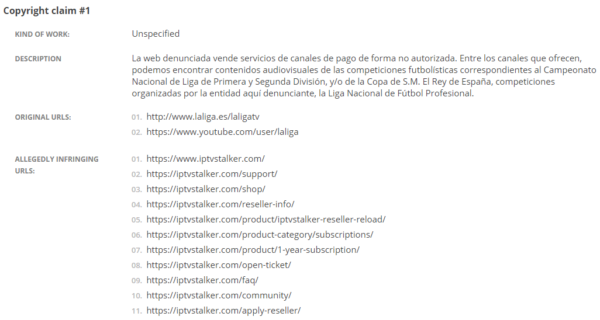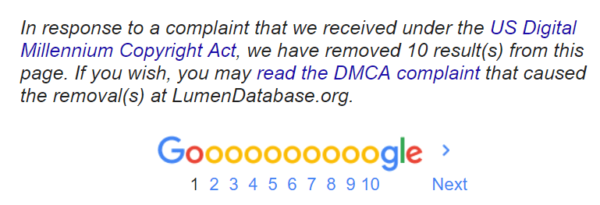 Whether it’s net neutrality or the latest change in copyright laws, the public has proven to be a fierce defender of an Open Internet.
Whether it’s net neutrality or the latest change in copyright laws, the public has proven to be a fierce defender of an Open Internet.
On social media platforms such as Twitter and Facebook, YouTube and Reddit, massive crowds are eager to protect their rights.
Internet protests are nothing new. For several years activists have fought to keep it free and open. Early pioneers, such as the late John Perry Barlow, did everything in their power to shield cyberspace from controlling governments and restrictive media companies.
The Internet is a tool for the people, by the people, something governments and corporations shouldn’t tamper with, it was commonly argued.
Although the Internet or more specifically, the web, is an entirely different animal today, large masses remain wary of outside control over their online movements. Most people agree that blatant criminal actions are not tolerated, but speech should be free and bits should flow openly.
At least, that’s the idea.
But while the masses were fighting evil governments and the greedy entertainment industries in recent years, they and many of their peers became trapped. The Internet is perhaps still as free as it once was, but the majority of its inhabitants are stuck in large Silicon Valley silos.
Today’s web is dominated by a dozen or so major platforms where people lead most of their Internet lives. Whether it’s Facebook, Twitter, Instagram, YouTube, or Reddit, these platforms are not entirely open. They are controlled by corporations which are free to dictate their own rules.
And they do.
When people were climbing on the virtual barricades for Net Neutrality earlier this year, they did so on platforms that ban, censor and restrict all sorts of content. They were calling for “all bits to be equal” on services that censor nipples.
Similarly, as we highlighted earlier, the hundreds of thousands of people who protested the EU’s proposed “upload filter” plans, did so on Twitter, Facebook, YouTube, and other services that already have automated piracy filters. Pretty sloppy filters, at times.
We’re living in a cyberspace where the major Internet platforms have immense power.
This was illustrated recently when Alex Jones’ Infowars was systematically purged from various Internet platforms, iTunes, Twitter and Facebook included. While many people categorize Infowars as hate speech, it is still speech which to my knowledge no court has deemed illegal.
Without any moral judgment on the content, it shows that today’s web, at least how it’s used, is far from open. Governments and the powerful copyright lobby are not to blame, though. The web is systematically controlled by the policies of a few Silicon Valley giants, who have their own rules.
These centralized social silos have, of course, all the right to ban anyone or anything for whatever reason they please. But, this presents an increasing threat. Not least because they can be regulated much more easily than was the case 20 years ago.
If you want to keep something away from the masses, there are only a few companies to legislate, litigate, or pressure.
It is, therefore, no surprise that the entertainment industries have launched a major push to get these Internet giants to tackle piracy, voluntarily or not. Achieving success there will have a major impact, and if Silicon Valley can take a stand against Infowars, they can do more.
While there’s a good argument for taking illegal content down, one has to wonder whether this highly centralized Internet, dominated and dictated by major tech companies, is something the early pioneers had envisioned.
Interestingly, copyright holders have repeatedly warned against this power. In their own interest, but it’s something to think about.
Of course, the Internet is much more than the Facebooks, Twitters, and Googles of this world. There are plenty open source and decentralized solutions available for all these platforms, and some already have a decent userbase.
The bottom line, however, is that the general sense of openness and neutrality of the web are not only defined by laws and court orders. What matters even more perhaps, is how people decide to use it.
~
Source: TF, for the latest info on copyright, file-sharing, torrent sites and more. We also have VPN reviews, discounts, offers and coupons.

 This week we have two newcomers in our chart.
This week we have two newcomers in our chart. Whether it’s net neutrality or the latest change in copyright laws, the public has proven to be a fierce defender of an
Whether it’s net neutrality or the latest change in copyright laws, the public has proven to be a fierce defender of an  Little more than three years ago Elsevier, one of the world’s largest academic publishers,
Little more than three years ago Elsevier, one of the world’s largest academic publishers, 


 With $15 billion in annual revenue, American satellite and broadcast provider
With $15 billion in annual revenue, American satellite and broadcast provider 